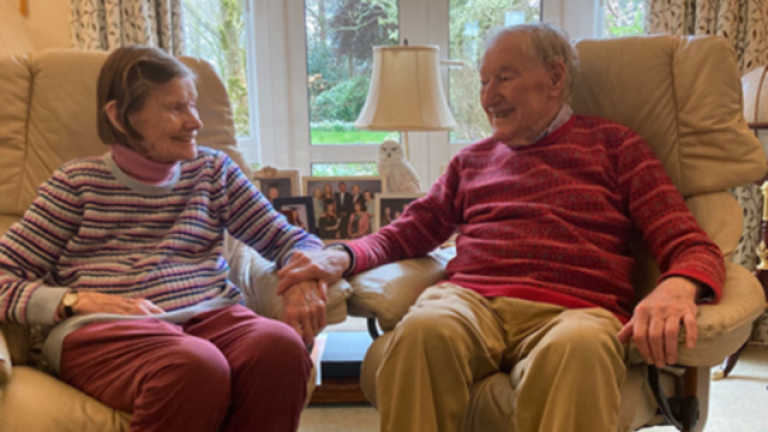Dr Helen Milbourn is a Consultant Geriatrician at Royal United Hospital Bath NHS Foundation Trust and Co-Chair of the BGS End of Life Care SIG.
Dying matters to each and every one of us. We will all die. Our deaths will matter as much as, we hope, our lives. The deaths of those around us matter. But, as professionals engaged in the business of caring for people with frailty and long-term conditions, dying matters to us in a measure far greater than merely the sum of all the deaths which we witness.
Dying matters to us because, of the 650,000 deaths which occur every year, 75% of them are in the over 75s. 44% of these deaths will occur in hospital, 29% at home and 20% in care homes. Only 4% of people die in a hospice. Dying and end of life care is our business. As professionals skilled in comprehensive geriatric assessment, we have a lot to offer.
For those of us who work in secondary care, 30% of our hospital’s beds will be occupied by people in the last year of their lives. For every £5 spent on healthcare for a person in the last year of their life, £4 will be spent in an acute hospital, with less than £1 being spent on healthcare in the community or primary care.
Dying matters to us because we are part of the multidisciplinary team caring for the dying. In hospitals, care homes and private homes, we are the clinicians entrusted with the responsibility of recognising dying, communicating dying to individuals and their loved ones and facilitating discussions about wishes, priorities, and what is important to that individual.
I increasingly find myself acting merely as a facilitator of conversations about dying, an onlooker as individuals describe to their families and carers, often their children, that they feel they are coming to the end of their lives and that, as the weeks have progressed, the things they value in life are becoming more remote to them. Often, I do nothing but listen, and on other occasions, I find myself interjecting when carers and family members try to interrupt their loved one due to the exquisite discomfort of facing up to their mortality. “Let’s listen to what your mother’s trying to say,” I found myself saying just last week after meeting a patient with two family members who introduced themselves to me as “scientists” as though death would not dare touch the lives of those who know science.
Dying matters, but no one wants to give it the time of day. It’s the unwelcome guest, the elephant in the room, the thing left unspoken. We’ve spent a whole year as a society discussing assisted dying, in Parliament, on the TV, on the radio, in newspapers, in pubs, coffee shops and dining rooms. Assisted dying is embraced by many because it is advertised as bringing “freedom from suffering”, “choice”, and “control”. Normal dying, the type that makes up the numbers above, is merely “passing away” and is discussed only after the event in hushed voices, which hint at the question “what went wrong?”
The nation’s favourite newspaper last week described the Pope as having “passed away”. You need not follow the Vatican closely to realise that the Pope had been incapacitated for a long while, recently very unwell, and that, in his belief, he was going to meet the Father and experience the homecoming that his life’s work had been building to. A very frail man in his late 80s died after a long life having reached the pinnacle of his profession, but the most widely read newspaper in Europe couldn’t use the D word to describe this event.
Dying matters, and dying is not going anywhere. As professionals serving a population with frailty, multimorbidity, and often dementia, we must embrace the business of dying and work urgently to ensure we identify it, prepare our patients and their families for it, and ensure that control, freedom from symptoms, and choice can accompany normal dying and not be the preserve of assisted dying.
As a doctor, the core principle of my practice is to “do no harm”. Offering false hope, denying people the chance to plan for their deaths and prolonging suffering all contravene that principle. Death is all of our business, both literally and metaphorically; we fail to embrace it at our patients’ peril.


